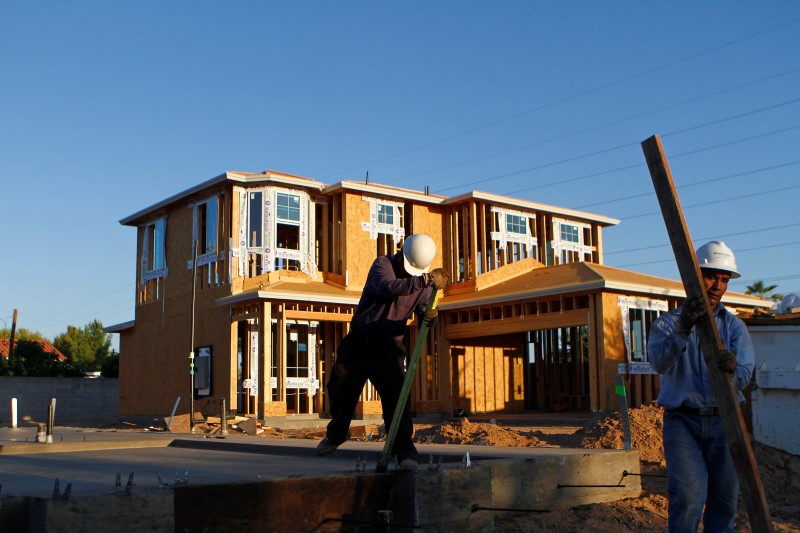SYDNEY, April 1 (Reuters) - Australian home prices rose only marginally in March while annual growth braked to its slowest in 31 months, a cooling that should please policy makers worried about the risk of a borrowing-fuelled bubble.
Friday's figures from property consultant CoreLogic RP Data showed its index of home prices for the combined capital cities rose 0.2 percent in March, compared to February when prices increased by 0.5 percent.
Annual growth slowed sharply to 6.4 percent, down from 7.6 percent the month before and a cycle peak of 11.5 percent struck last year.
That would be a comfort to the Reserve Bank of Australia (RBA) which signalled alarm last year when a surge in borrowing for investment properties risked over-heating the market.
Regulators responded by tightening lending standards for buying to let with the aim of keeping annual growth in loans at 10 percent or less.
Investment borrowing has since subsided, removing one potential hurdle to a further cut in official interest rates.
The central bank holds its monthly policy on April 5 and is widely expected to keep rates at 2 percent, though investors are still toying with the idea of a cut later this year.
As usual, growth in home prices varied widely across Australia's major cities. Sydney saw a rise of 1 percent in March, from February, but the annual pace dropped to 7.4 percent from 9.5 percent. It touched a peak of 18.4 percent in July last year.
Prices in Melbourne dipped 0.6 percent in March, but values were still up 9.8 percent for the year. Prices outside of the major cities grew just 1.6 percent in the year to March.
Only Perth and Darwin saw outright declines in prices for the year, and those were modest.
"Overall, no indicators have emerged to suggest that dwelling values are starting to show sharp declines in any of the capital cities," said RP Data head of research Tim Lawless.
"We are likely to see Sydney and Melbourne dwelling values continue to rise, at least on average over 2016 and 2017, however growth rates are likely to be substantially lower than what has been recorded over previous years."
